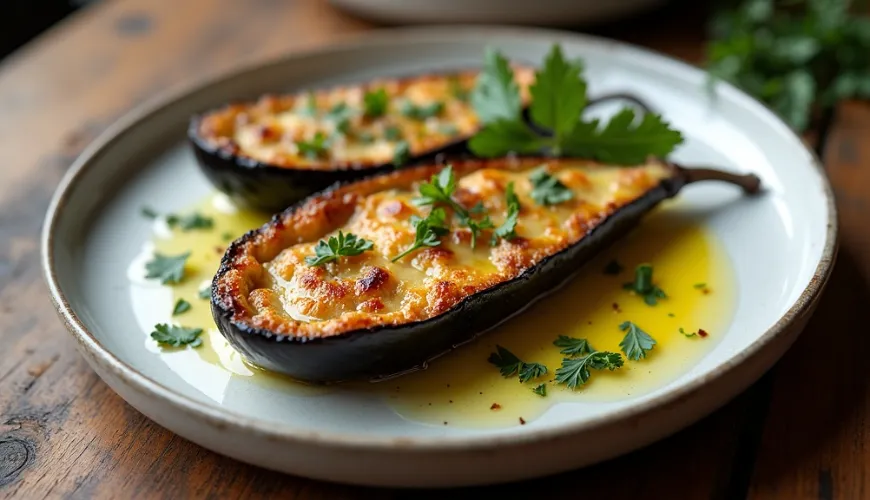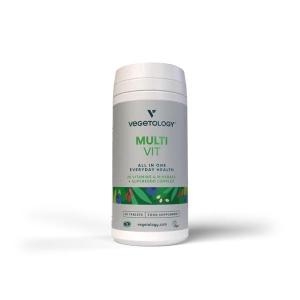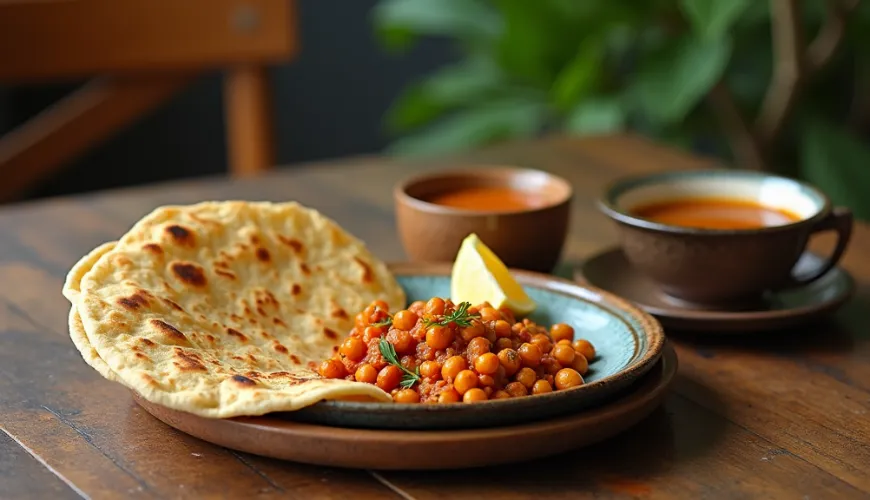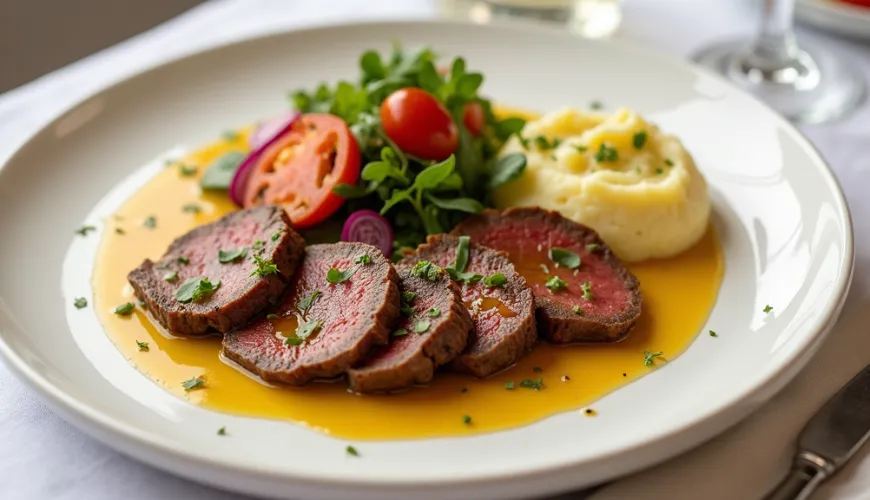
Discover the Magic of Eggplant and Its Health Benefits for Your Diet

What is Eggplant and Why It Should Have a Place in Your Kitchen
Do you know that dark purple fruit resembling an inflated cucumber? Many pass by it on store shelves without stopping to think about what eggplant actually is and the diverse possibilities it offers in the kitchen. Yet, it is an ingredient that is a common part of Mediterranean and Asian cuisine, and due to its versatility and low-calorie content, it deserves much more attention from us.
What is Eggplant?
Eggplant, sometimes also called aubergine, is the fruit of a vegetable belonging to the nightshade family – just like tomatoes, peppers, or potatoes. Although used as a vegetable in the kitchen, botanically it's a berry. Originally from India, it is now widespread worldwide. Most often, you will find the dark purple variety in stores, but there are also white, striped, or green varieties.
The fruit of the eggplant has a delicate, slightly sweet flavor and a spongy texture. Thanks to this, it can absorb the flavors of spices, herbs, or marinades, making it an ideal candidate for various recipes. It's no wonder that in traditional Italian, Greek, Turkish, or Indian cuisine, eggplant is an indispensable ingredient.
But beware – raw eggplant is not tasty and contains small amounts of solanine, which can be toxic in large quantities. Fortunately, it breaks down during cooking. Therefore, eggplant is always consumed cooked – boiled, stewed, grilled, fried, or baked.
Why Give Eggplant a Chance?
In addition to being very versatile, eggplant also has an excellent nutritional profile. It contains minimal calories (approximately 25 kcal per 100 grams), almost no fat, but a decent amount of fiber. It is also a source of antioxidants, such as nasunin – a pigment that gives the skin of the eggplant its typical purple color while protecting cells from damage. It also contains B vitamins, vitamin K, and potassium.
Try our natural products
For vegetarians and vegans, eggplant is a very attractive meat substitute because, when prepared correctly, it gains a similar texture. In some recipes, it even replaces minced meat – for example, in the Italian classic parmigiana di melanzane.
In short, eggplant is a food that can be tasty, healthy, and gentle on the planet – if you know how to handle it.
How to Prepare Perfectly Baked Eggplant
You might be thinking: "Okay, that sounds interesting, but what do I do with it in the kitchen?" The first thing that's good to try is baked eggplant. It's a simple preparation method that enhances its flavor while preserving its texture.
Simply cut the eggplant lengthwise, score the flesh in a grid pattern, brush with olive oil, salt, pepper, and optionally add garlic or thyme. Bake for about 30–40 minutes at 200 degrees – and the result? A soft, sweet interior and a slightly crispy crust.
Baked this way, eggplant can serve as a side dish, a base for sandwiches, part of a Buddha bowl, or as a main dish – for example, stuffed with quinoa, tomatoes, and vegan cheese.
Inspiration from Around the World - The Most Interesting Eggplant Recipes
Eggplant is one of those ingredients that you find in kitchens across continents. Each region has its unique way of preparing it. Some dishes have even become iconic.
- Baba Ganoush – a smooth Middle Eastern dip made from roasted eggplant, tahini paste, garlic, and lemon juice. Perfect with pita bread or as an appetizer.
- Ratatouille – a French vegetable medley where eggplant plays a leading role alongside zucchini, peppers, and tomatoes.
- Moussaka – a layered Greek dish of eggplant, minced meat, and béchamel sauce. There are also vegan versions where the meat is replaced by lentils or soy granules.
- Baingan Bharta – an Indian dish of roasted eggplant mashed into a puree, flavored with garlic, ginger, chili, and curry spices. Served with rice or flatbreads.
- Parmigiana di Melanzane – an Italian classic where slices of fried or baked eggplant are layered with tomato sauce and cheese into a baked delight.
And in these dishes, it becomes clear what enormous potential eggplant has. While in some recipes it plays a secondary role, elsewhere it becomes the main star of the entire meal.
A Real-Life Example - How Eggplant Changed Home Cooking
"I didn't understand why I should buy this purple thing. It seemed slimy and tasteless to me," admits Petra, a mother of two, who decided to cut down on meat two years ago. "But then on holiday in Greece, I tasted moussaka – without meat – and I was shocked at how delicious it was. I found the recipe at home, and since then, eggplant is regularly on our menu. The kids love baked eggplant with parmesan, and I'm glad we're eating healthier."
This story is not unique. Eggplant finds its way into households through experiences, inspiration, and alternative eating. And once you learn how to handle it, you'll find it's indispensable.
Tips for Working with Eggplant
Want your eggplant to really stand out? Then follow a few tricks. First, salt it in advance – just let it sweat for 20–30 minutes, and it will be less bitter and roast beautifully. Don't overdo it with oil, but don't be afraid of it either – while eggplant absorbs it like a sponge, if you use quality olive oil, it will be great. Baking or grilling is a better choice than frying. And don't forget herbs like basil, oregano, or coriander, which will flavor it perfectly. If you like experimenting, try fermenting eggplant – it will open up completely new flavors for you.
Eggplant in a Sustainable Kitchen
In today's world, where there is more and more talk about sustainability and responsible living, eggplant has its firm place. It is a seasonal crop that can be successfully grown even in the Czech Republic, and thanks to its ability to replace meat, it contributes to a lower ecological burden. Vegan and vegetarian dishes with eggplant are not only healthier but also more environmentally friendly.
By regularly incorporating plant-based meals, such as baked eggplant with couscous or grilled eggplant with tahini dressing, we can gradually reduce our carbon footprint – without having to give up taste or variety.
And so, even if at first glance it may seem like an ordinary vegetable, eggplant is a small culinary treasure. It's just a matter of overcoming initial uncertainty, opening up to new recipes, and not being afraid to experiment. The result can be not only a delicious meal but also a slightly better world – one bite at a time.







